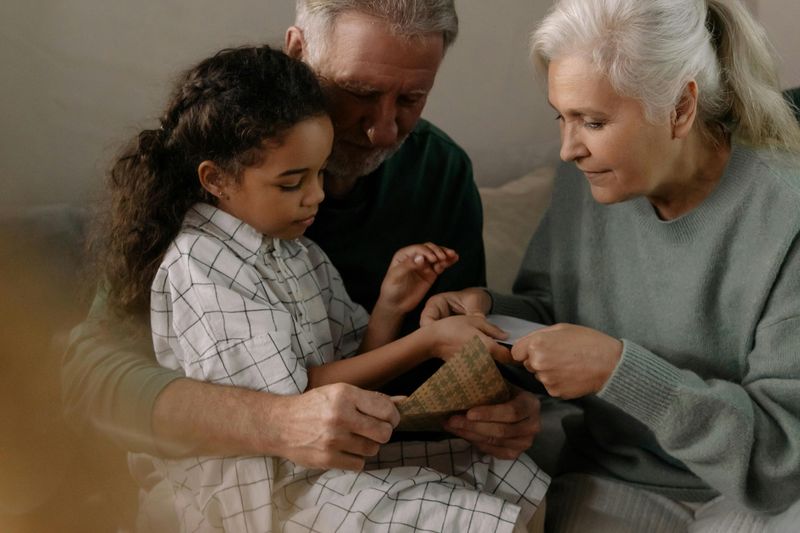12 Phrases Boomers Say That Instantly Start an Argument

Every family gathering or casual conversation can take an unexpected turn when certain phrases pop up. Baby Boomers grew up in a different world with unique values and experiences that shaped how they communicate. Sometimes, what they see as helpful advice or simple observations can feel dismissive or out of touch to younger generations, sparking heated debates and uncomfortable silences.
1. Back in my day…

Nothing shuts down a conversation faster than hearing these four words. When older relatives start comparing their youth to today’s world, it often feels like they’re saying modern struggles don’t matter.
The problem isn’t nostalgia itself—everyone remembers their past fondly. What causes friction is when this phrase dismisses real challenges young people face today. Housing costs have skyrocketed, education is astronomically expensive, and entry-level jobs often require years of experience.
Instead of building bridges between generations, this phrase creates walls. Younger folks want their experiences validated, not compared to a time when college cost a few thousand dollars and houses were affordable on a single income. Understanding that both generations faced difficulties—just different ones—could help everyone get along better.
2. Kids these days don’t want to work

This accusation lands like a punch, especially for young adults juggling multiple jobs or working long hours. Statistics show that millennials and Gen Z actually work just as hard, if not harder, than previous generations.
Many younger workers balance side hustles, gig economy jobs, and traditional employment just to make ends meet. They’re not lazy—they’re exhausted from trying to survive in an economy where wages haven’t kept pace with inflation. When Boomers say this, it ignores the reality of unpaid internships, contract work without benefits, and the constant pressure to be available 24/7.
The phrase also overlooks how work itself has changed. Remote work, digital communication, and flexible schedules don’t mean less work—just different work. Recognizing these shifts would help both generations appreciate each other’s contributions.
3. You just have to work harder

Hard work matters, but this advice sounds tone-deaf when someone’s already working multiple jobs. It suggests that struggling financially is purely a personal failure rather than acknowledging systemic economic challenges.
Previous generations could work their way through college with a summer job. Today, that’s impossible when tuition costs tens of thousands annually. Student debt, expensive healthcare, and rising rent create barriers that sheer determination can’t always overcome. Telling someone to simply work harder ignores these structural problems.
This phrase also assumes everyone starts from the same place, which isn’t true. Some people face discrimination, lack connections, or deal with health issues that complicate their journey. Empathy and understanding would go much further than this oversimplified solution.
4. We didn’t have that growing up, and we turned out fine

Did everyone really turn out fine, though? This phrase often dismisses important progress in mental health awareness, safety standards, and social understanding. Just because people survived without something doesn’t mean they thrived or that we shouldn’t improve.
Mental health wasn’t discussed openly in past decades, leading many to suffer in silence. Today’s willingness to seek therapy and talk about feelings represents growth, not weakness. Similarly, advances in technology, medicine, and education make life genuinely better in many ways. Rejecting these improvements sounds stubborn rather than wise.
Every generation builds on what came before. Seat belts, smoke alarms, and child safety seats weren’t always standard, but we’re better off with them. Embracing positive changes while respecting tradition creates healthier conversations than clinging to how things used to be.
5. Why don’t you just buy a house?

If only it were that simple! This question reveals a massive disconnect between generations regarding housing affordability. What cost a few years’ salary in the 1970s now requires decades of saving for many young adults.
Average home prices have increased dramatically while wages have barely budged. Add student loan debt, rising rent, and the need for massive down payments, and homeownership feels impossible. Many young people would love to buy houses—they simply can’t afford them despite working full-time jobs.
This phrase also ignores how lending standards and market conditions have changed. Previous generations could buy homes more easily with less stringent requirements. Acknowledging these economic realities instead of making it sound like a simple choice would prevent countless arguments at family dinners.
6. Nobody wants to work anymore

This sweeping generalization oversimplifies complex labor market trends. People do want to work—they just want fair wages, decent benefits, and respect from employers. The pandemic revealed how many workers were underpaid and undervalued in essential jobs.
When businesses complain they can’t find workers, it’s often because they’re offering poverty wages for demanding work. Younger generations watched their parents sacrifice everything for companies that showed no loyalty in return. They’re not lazy; they’re smart enough to demand better conditions.
The labor market has shifted, with workers finally having some power to negotiate. Instead of criticizing people for wanting livable wages and work-life balance, perhaps it’s time to recognize that exploiting workers was never sustainable. Fair treatment isn’t entitlement—it’s progress.
7. You’re too sensitive

Few phrases shut down communication more effectively than this one. Telling someone they’re too sensitive invalidates their feelings and experiences, making them feel unheard and disrespected.
What older generations sometimes call sensitivity, younger people call awareness. Being mindful of how words affect others isn’t weakness—it’s emotional intelligence. Society has evolved to recognize that jokes about race, gender, or disabilities aren’t harmless fun; they’re hurtful and unnecessary.
When someone says they’re offended or hurt, responding with this phrase ends the conversation instead of creating understanding. Everyone has different experiences that shape what bothers them. Rather than dismissing concerns as oversensitivity, listening and learning costs nothing but creates much better relationships across all ages.
8. That’s not how we did it

Change makes everyone uncomfortable, but resisting it entirely stops progress. This phrase pops up in workplaces and homes when younger people suggest different approaches or use new technology to solve old problems.
Just because a method worked in the past doesn’t mean it’s the best option now. Technology, research, and innovation constantly provide better ways to accomplish tasks. Clinging to outdated methods because they’re familiar wastes time and resources.
Successful organizations and families blend experience with innovation. Older generations have valuable wisdom about what works, while younger people bring fresh perspectives and technical skills. Saying this phrase shuts down collaboration and makes younger folks feel their contributions don’t matter. Openness to new ideas benefits everyone involved.
9. Respect your elders

Respect should flow both ways, not just upward based on age. While courtesy toward older people is important, this phrase often gets weaponized to shut down legitimate criticism or valid concerns.
Age brings experience, but it doesn’t automatically make someone right about everything. Younger people deserve to have their opinions heard and their boundaries respected too. Using age as a trump card in arguments feels condescending and dismisses the value of fresh perspectives.
True respect develops through mutual understanding, not demanded obedience. When older folks listen to younger generations with genuine interest, respect naturally follows. But commanding it simply because of birthdate creates resentment instead. Treating everyone with dignity regardless of age creates much healthier family and social dynamics.
10. You have it so easy

Easy? Really? This statement ignores mountains of evidence showing younger generations face unique and serious challenges. Sure, technology makes some things convenient, but it doesn’t solve fundamental economic problems.
Student loan debt crushes millions of young adults, delaying major life milestones like buying homes or starting families. Healthcare costs are astronomical, climate change creates anxiety about the future, and social media brings constant comparison and pressure. These aren’t minor inconveniences—they’re life-altering stressors.
Every generation faces difficulties, just different types. Pretending modern life is easy because smartphones exist completely misses the point. Information overload, job insecurity, and economic uncertainty create their own hardships. Acknowledging that both generations struggled—just differently—would foster empathy instead of resentment.
11. We didn’t talk about those things

Silence about mental health, trauma, and identity issues didn’t make them disappear—it just made people suffer alone. This phrase often sounds like it’s glorifying repression rather than recognizing progress.
Previous generations kept quiet about depression, anxiety, abuse, and sexuality, leading to tragic consequences for many. Today’s openness allows people to get help, find community, and heal from their experiences. Talking about difficult topics isn’t complaining; it’s healthy and necessary for wellbeing.
Suggesting that silence was somehow better dismisses the pain many people endured. Therapy, support groups, and honest conversations about identity save lives. While some conversations might feel uncomfortable, they’re infinitely better than forcing people to hide their struggles and pretend everything’s fine when it isn’t.
12. If you can’t say anything nice, don’t say anything at all

Politeness has its place, but this phrase sometimes silences important conversations that need to happen. Not all criticism is mean—some is necessary for growth, accountability, and positive change.
When companies mistreat employees, politicians make bad decisions, or family members behave harmfully, staying silent isn’t kind—it’s enabling. Younger generations understand that speaking up about injustice, even when uncomfortable, matters more than keeping false peace.
There’s a difference between being cruel and being honest. Constructive feedback, setting boundaries, and addressing problems directly are healthy communication skills. Using this phrase to avoid difficult discussions prevents resolution and lets problems fester. Learning to handle criticism and have tough conversations benefits everyone more than enforced niceness ever could.

Comments
Loading…